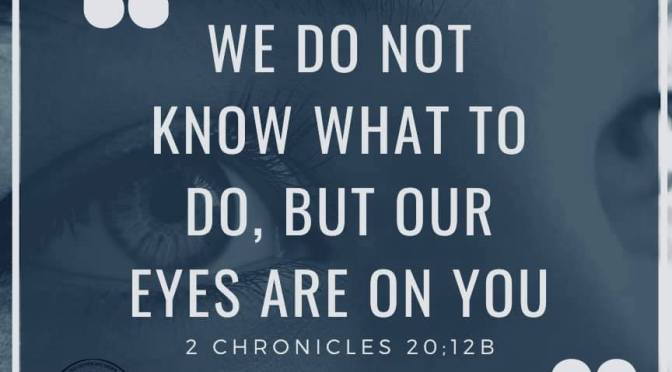Today’s post is an excerpt from Chapter 12 of my book, Called to Peace: A Survivor’s Guide to Finding Peace and Healing After Domestic Abuse. Whether you’ve been through an abusive relationship or not, life is often unfair and it’s easy to find yourself overwhelmed with anger, but God offers a way out. My prayer is that the words in this chapter will help you connect to His freeing truth.
Anger
In my years of counseling victims of domestic violence, I have met some pretty angry people, and in many cases, their stories have angered me as well. Domestic violence can be unimaginably cruel, and it is difficult to hear the accounts without feeling upset about the injustice of it all. Quite often, victims are not only injured by their spouses, but they find very little support when they reach out for help. The judicial system frequently favors perpetrators, who tend to have greater financial resources, and often seem much more composed in court. Even churches can make matters worse for victims when they don’t understand the dynamics of abuse or interpret scriptures on marital roles harshly. For victims, insult is added to injury on a regular basis.
Living with abuse gives us plenty of reason to be angry, but sometimes our anger becomes sinful and destructive. Unfortunately, when that happens we often find ourselves living with negative consequences. Proverbs 22:24-25 warns, “Do not make friends with a hot-tempered person, do not associate with one easily angered, or you may learn their ways and get yourself ensnared.” We can easily find ourselves compounding the pain and misery of an already bad situation by allowing anger to rule our hearts. It is easy to find yourself responding with anger when you’ve lived with it day in and day out but letting yourself to be consumed by it will merely worsen the situation.
Becoming upset over violence and injustice is not only understandable, but it is also normal. Ephesians 4:26-27 seems to imply that anger is common but warns “In your anger do not sin”: Do not let the sun go down while you are still angry, and do not give the devil a foothold.” The problem isn’t becoming angry as much as it is failing deal with it quickly. When we stay angry and allow it to control us, we are headed for trouble. It seems that unresolved anger opens our lives to Satan’s destructive schemes (Eph. 4:26-27).
There was a time when I became so angry, I began to suffer physical symptoms. Even worse, I found myself snapping at my children for the littlest things. Rather than being able to offer them the love and support they needed to get through the devastating events they were experiencing, I found myself so consumed with anger that I had nothing left to give. The problem with maintaining anger is that you can’t simply contain it to one area of your life. It spills out onto others and “defiles many” (Heb. 12:15). It is like a poison that damages every relationship in your life, including the most important one of all—your relationship with God. During this period, I found myself feeling as if my prayers were hitting the ceiling. Although I continued to reach out to God, resentment controlled me rather than his Spirit, which left me very isolated from my Helper. I needed to learn how to handle my anger biblically.
Divine vs. Human Anger
Scripture clearly tells us there are things that anger God, and we are created in His image as emotional beings. God’s wrath is provoked by sin, and He hates violence. In Genesis, God told Noah “I am going to put an end to all people, for the earth is filled with violence because of them” (6:13). It was enough to cause God to want to destroy His own creation, so it is certainly understandable when we get upset about it. Even the second part of Malachi 2:16, “God hates divorce” indicates He also hates it when a husband deals violently and unfaithfully with his spouse. The Bible is filled with passages proclaiming our Creator’s hatred of injustice and unfaithfulness. As His children, we should naturally hate the evil that he hates. Our problem is that we usually carry it a little too far. Rather than turning the situation over to God, and leaving justice in His hands, we try to control it.
In reality, much human anger reveals a lack of trust in God. We may be questioning why He has allowed bad things to happen in our lives, and if He really cares. In our minds, we profess that He is good, but in our hearts, we doubt it. We know that His Word commands us to forgive, but we believe that forgiving is like giving a stamp of approval to the abuse. Thoughts like this unconsciously charge God with injustice. When we see our offenders “getting away” with sin, we want to take matters into our own hands, because it seems as though God is sitting back doing nothing. I know that’s how I felt, and I became so miserable that life was not worth living. Over time, God graciously intervened, but it was not an overnight event. It was a process that required me to take some very specific steps.
Face the Truth
People who live with abuse live with lies, and I was certainly no exception. I told myself that my husband couldn’t help it when he blew up, and that he was simply a product of his environment growing up. I tried to hide our violent episodes from everyone to the point that I almost seemed to hide them from myself. For over two decades I went to great lengths to avoid the truth; until one day I could avoid it no longer and found myself angrier than I had ever been. I was worn down by months of constant offenses. Doug had been calling and threatening me 15-20 times a day. I was afraid not to answer, because I felt if he didn’t get me on the phone, he would come out and make good on the threats. Normally, I would just hold the phone away from my ear and let him rant, because I learned that saying anything just made matters worse. On one particular call I heard the screaming stop and put my ear up to the phone just in time to hear him quietly threaten suicide. He slammed down the phone, and that was that. He had made similar threats in the past, but had never followed through, and usually started harassing me again within hours. However, this time I heard nothing for two whole days, and became concerned about him. I drove past his house both days and noticed that his car had not moved. On the third day I decided to take my key to our former home and go check on him. I was scared to death to go in but was so worried that I did it anyway. He was not downstairs, so I tiptoed upstairs and saw him lying deathly still on his bed. He looked extra pale, so I went up and nudged him. As soon as I did he woke up cursing at me, and I ran out as quickly as I could.
Within a few hours I got a call from the county sheriff’s department saying that Doug had come in— and charged me with criminal trespassing. They had a warrant for my arrest, and he urged me to come turn myself in. I was released on my own recognizance, but I was furious! How dare he have me charged as a criminal when I was merely concerned for his well-being? Foolishly, I decided to call and let him know just how awful his action had been, but the conversation only left me more upset. I told him he was the one who needed to be arrested for violence against me, but he said he had only hit me one time in the entire history of our relationship. He basically denied being abusive, and I couldn’t believe his nerve! My response was pure rage. By this point I was learning to turn my strong emotions over to God, so I started writing in my journal, telling Him about all the horrendous things Doug had done over the years.
As I was banging out complaints on my computer keyboard, my friend Karen happened to call to check on me. I told her about my earlier conversation with Doug, and the already lengthy list of offenses I was compiling. Much to my surprise, Karen said “Don’t forget the time he tore up the house, because he was mad at the cat.” I was confused, because I didn’t remember it at all. After she reminded me that they had provided housing, and how it had been resolved, I remembered. The odd thing was that it had only happened 12 months earlier! I was amazed that I could forget it so soon, but I believe that I had gone to such great lengths to hide it I had almost convinced myself it didn’t happen. For the most part, those of us who have been abused remember the abuse. I surely remembered the most traumatic incidents, but sometimes we lie about it so much that we begin to believe our own lies. I’ve met women who have casually told me that they had no problem forgiving their abusive spouses, but they could barely talk about what happened. Some who did open up were still making excuses or denying the severity of the abuse. That is burying anger, not dealing with it.
Entrust it to Him
After admitting the truth, we must put it in His hands. A great deal of healing happened in me the day I finally faced the truth and conceded just how horrible things had been. Let me clarify. I do not think I was healed simply because I finally told myself the truth. That was only part of it. The reason I found healing was that I was pouring out my hurts to God and committing them to Him. The truth was too overwhelming for me to handle on my own, but I knew my heart was safe with Him. Psalm 62:8 encourages us to pour out our hearts to God, and that is what I did on that day. When you face constant offenses, it will often require you to surrender your anger again and again, but it will guard your soul. Commit the offenses you have suffered to Him. It is the only way to avoid carrying them yourself, and He is far better equipped to handle them. Each night when you lay your head on your pillow, drop those heavy burdens at His feet and trust Him to fight your battles.
Choose to Forgive
For many of us, forgiving our abusers can be the toughest battle we face in the recovery process, but it is a necessary step in overcoming the anger that comes from abuse. Although it may seem that facing the truth about the hurts I had experienced would have made it harder to forgive, it actually helped, because I realized it was too big for me to handle alone. I knew I could not face the pain without God’s help. I also knew His Word commanded me to forgive, but I needed a lot of help in working through it. At the height of my anger, our ladies’ Bible study decided to work through Kay Arthur’s Lord, Heal My Hurts. When I picked up the book, I noticed a chapter in the Table of Contents entitled “How Can I Forgive?” It was the very question I had been asking myself, and this wonderful Bible study helped me figure it out. When I was able to forgive, it was as if a thousand-pound burden had been taken off my shoulders.
There were a few common misconceptions I had to overcome in order to truly forgive, and I’ve seen many other survivors struggle with them as well. As a child, I was taught to forgive and forget. When my siblings and I asked for forgiveness, we were taught to respond with, “That’s ok. I forgive you.” Then, we were expected to hug and make up. Basically, that formed my view of how the process should look, but it was a very flawed perspective, because it caused me to believe that forgiveness would always lead to reconciliation. I also thought forgiving meant I simply had to minimize or dismiss the offenses as though they had never happened. Thankfully, I was wrong on both counts. Biblical forgiveness is placing the offender in God’s hands and leaving justice to Him. It is letting go of our own need for vengeance; but it definitely is not dismissing the hurt as though it wasn’t that bad or that it never happened. Romans 12:17-21 gives us instructions on dealing with those who harm us. Romans 12: 17-19 instructs us not to repay evil with evil and not to take revenge, but to leave room for God’s wrath.
We must trust that He will handle the situation in His time and with perfect justice. Also, we need to refuse to stoop to our abusers’ level by taking revenge. Usually when we refuse to let go of our anger and desire for retaliation, it is because we don’t trust that His way of dealing with it is better than ours. We will never find peace until we realize He always has our best interest at heart, and He is working all things together for our good (Rom. 8:28-29). Regardless of how things may look in the present, there will come a day when your abuser will have to bow before Him, perhaps in great fear and trembling, and confess that He is Lord (Ph. 2:10-11). We need to trust Him to make all things right in due time.
Resolve to Believe Him
Letting go of anger and believing God is definitely a choice, and not a simple process. For me it was hard work! It meant learning how to choose His truth over my feelings, and trust that He cared deeply for me— even when it didn’t feel that way. One day a phrase from Isaiah 50:7 spoke to me. This prophecy about Jesus predicted that he would set his face “like flint” to accomplish the Father’s plan. There was something about His determination in this verse that resonated in me because I knew that my outcome would be tied to my decision to believe Him. I decided that I would resolve to believe, no matter what happened or how I felt. I pray that as you read this, you will decide to do the same. To overcome anger, and its damaging consequences in your life, you must determine to do it God’s way rather than your own.
The Process
Dealing with anger His way requires taking several steps. It means being honest with yourself, and no longer minimizing or making excuses for the abuse. In order to truly heal, you must face and give the full weight of the burden to God. Commit your anger to God quickly, and do not let it fester. Let Him fight your battles. Sure, there may be actions you will need to take to protect yourself and your children, but you won’t have to try and control things or force your version of justice anymore. Choose to forgive your abuser, recognizing that it will set you free, and leave justice in God’s hands. Correct any thinking that is contrary to God’s truth and believe that God will redeem your sorrows. Remember that He is for you, and that even though He will not violate the free will of your abuser, He is sovereign, and He wants to use your trials for good. Finally, seek scriptures that provide instructions on wisely dealing with anger, and choose to apply them. Please see Appendix A at the end of this book for a list.
*Note: I do believe there comes a time in the healing process when staying angry can actually help us move forward. We have to become justifiably angry at the sin we’ve endured so that we will no longer make excuses for it or continue to subject ourselves to it. The problem comes when we allow the anger to control us rather than giving God control.
















You must be logged in to post a comment.